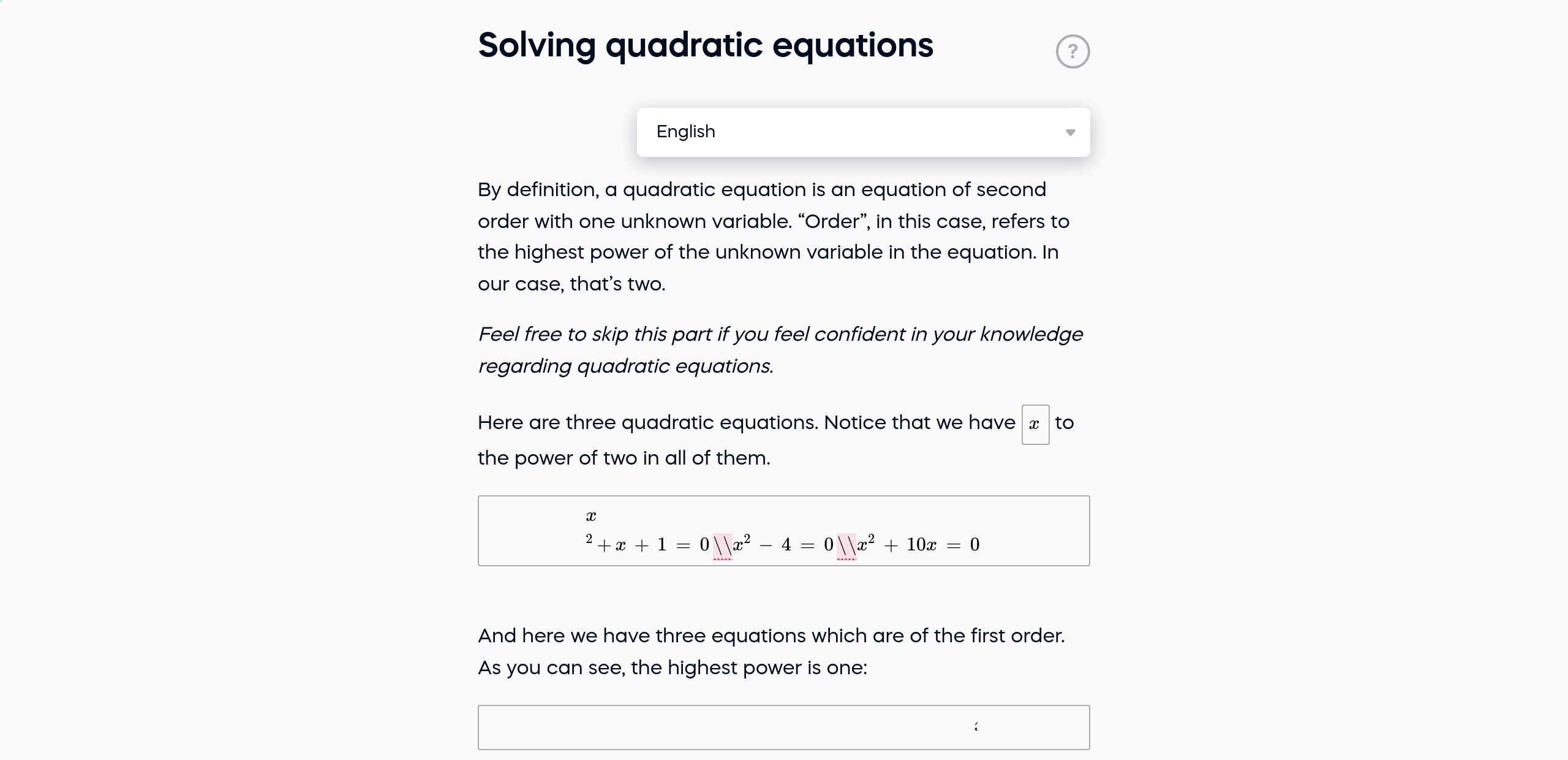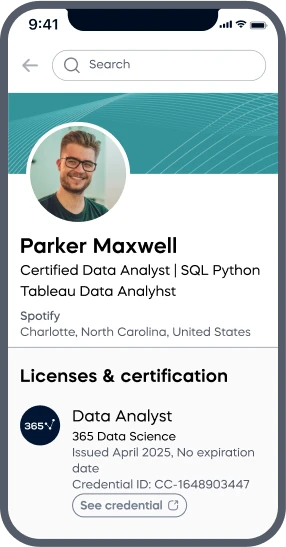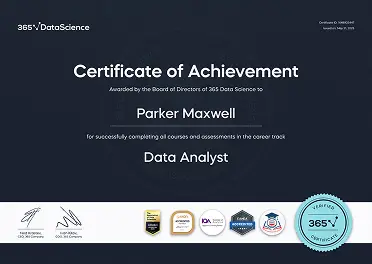Emmanuel O.
See all reviews
Build the fundamental and practical linear algebra skills needed to become a data scientist and work on machine learning models and AI






Skill level:
Duration:
CPE credits:
Accredited

Bringing real-world expertise from leading global companies
Bachelor's degree, Mathematics

Bringing real-world expertise from leading global companies
Master's degree, Sound Engineering
Description
Curriculum
Free lessons

1.1 What Does the Course Cover
4 min

1.2 Why Linear Algebra?
3 min

1.4 Solving quadratic equations
4 min

1.6 Vectors
5 min

1.8 Matrices
4 min

1.12 The Transpose of Vectors and Matrices, the Identity Matrix
4 min
9 in 10
people walk away career-ready
96%
of our students recommend
94%
of AI and data science graduates
successfully change
ACCREDITED certificates
Craft a resume and LinkedIn profile you’re proud of—featuring certificates recognized by leading global
institutions.
Earn CPE-accredited credentials that showcase your dedication, growth, and essential skills—the qualities
employers value most.





Certificates are included with the Self-study learning plan.


How it WORKS